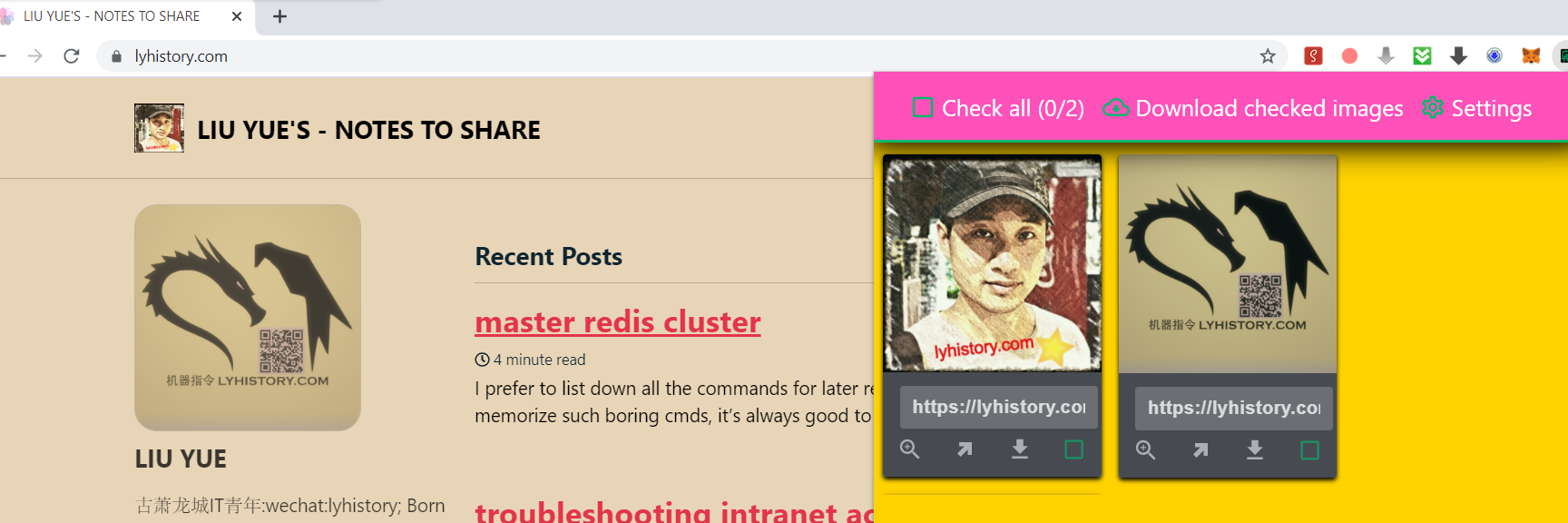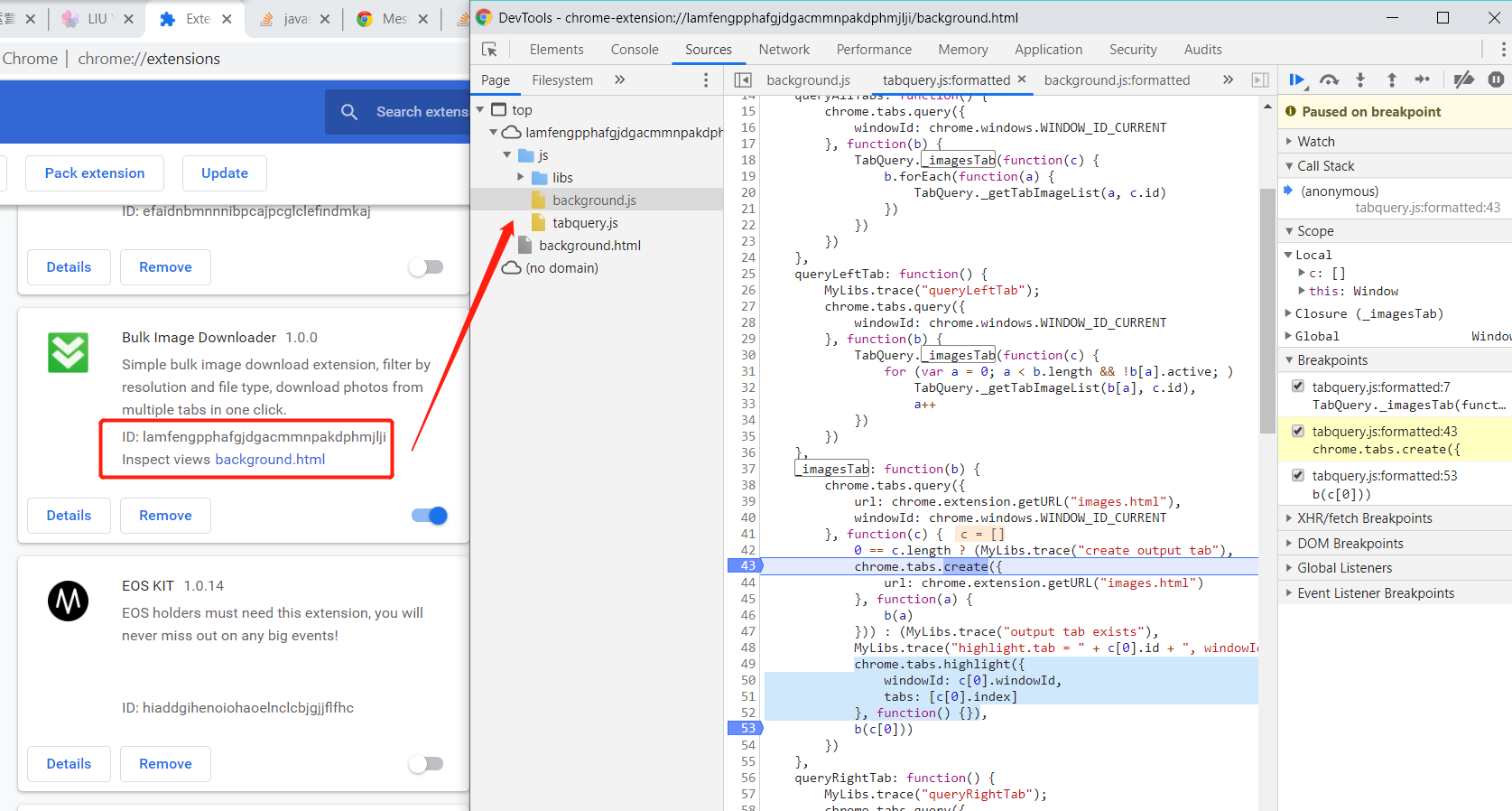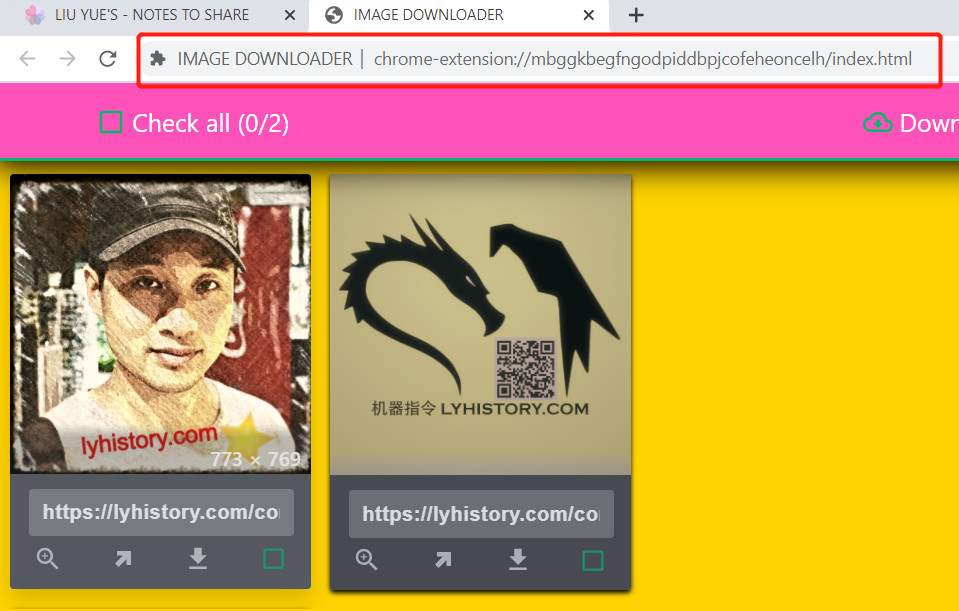https://developer.chrome.com/extensions/overview
# 0X00 chrome extension基础
chrome插件本质就是一堆HTML,CSS,JavaScript和一些配置文件的集合,可以拓展用户的浏览器体验
chrome://extensions
- Manifest
Json格式的文件,声明基本的版本,权限,图标,browser action或page action,background脚本
{
"name": "Getting Started Example",
"version": "1.0",
"description": "Build an Extension!",
"permissions": ["activeTab", "declarativeContent", "storage"],
"background": {
"scripts": ["background.js"],
"persistent": false
},
"page_action": {
"default_popup": "popup.html",
"default_icon": {
"16": "images/get_started16.png",
"32": "images/get_started32.png",
"48": "images/get_started48.png",
"128": "images/get_started128.png"
}
},
"icons": {
"16": "images/get_started16.png",
"32": "images/get_started32.png",
"48": "images/get_started48.png",
"128": "images/get_started128.png"
},
"options_page": "options.html",
"manifest_version": 2
}
- Background Script
插件的事件处理器,基本包括browser listener,比如插件安装事件,页面变化事件,快捷键监听事件
background.js:
chrome.runtime.onInstalled.addListener(function() {
chrome.storage.sync.set({color: '#3aa757'}, function() {
console.log("The color is green.");
});
chrome.declarativeContent.onPageChanged.removeRules(undefined, function() {
chrome.declarativeContent.onPageChanged.addRules([{
conditions: [new chrome.declarativeContent.PageStateMatcher({
pageUrl: {hostEquals: 'developer.chrome.com'},
})
],
actions: [new chrome.declarativeContent.ShowPageAction()]
}]);
});
});
- UI Elements
插件的用户界面,通常插件都有browser action或page action,不过也可以有其他形式的用户界面,比如context menu菜单,omnibox,甚至可以没有用户界面,比如只用快捷键keyboard shortcut; 通常默认界面我们叫popup.html,一般包含普通的html,插件也可以调用tabs.create或window.open()显示额外的更丰富的用户界面; 默认我们是在manifest里面通过browser action或page action定义好popup.html,除此之外,我们还允许通过 chrome.declarativeContent API来做更多自定义rules控制
popup.html:
<body>
<button id="changeColor"></button>
<script src="popup.js"></script>
</body>
- Content Script
插件读写操作web页面dom就是利用这个content script,这个脚本就是将javascript装载到web页面的上下文中运行,可见content script和上面的其他script上下文是不同的,他们可以交互吗?可以,就是通过chrome.storage API
popup.js
chrome.tabs.executeScript(targetTabID, {
file: '/scripts/content_script.js',
allFrames: true
});
- Option Page
这个是额外选项,默认安装的extension只有一个background的view可以inpsect,这个是额外的选项可以让用户直接做相应的设置,比如让用户选择需要的功能,这个需要在manifest中定义好options_page; 当然从前面的popup页面中也可以设置,只不过这里提供了另外一种方式;
还需要注意chromeAPI基本都是异步的,所以如果你的代码逻辑有依赖,需要放到callback里面
# 0X01 我遇到的问题
首先我想加入一个快捷键功能,不用鼠标点来点去,很简单,manifest加入 "commands": { "your-command-name": { "suggested_key": { "default": "Ctrl+X"
},
"description": ""
}
}, 然后background.js: chrome.commands.onCommand.addListener(function(command) { if(command === "your-command-name") { //to implement
....
另外我更改的开源的插件都只能在该tab页面打开一个poppup窗口,

我老婆之前用的比较好的一个插件是可以开启新tab操作别的tab窗口内容,我自己试了下
Cannot access contents of url "chrome-extension://l". Extension manifest must request permission to access this host. 原来操作tabs还是要加权限的 但是我不太明白新开tab之后如何在之前的tab也就是target页面上加载执行脚本,所以参考了下别人的插件,开发者模式下chrome这里有个很好的debug功能,可以直接点击inspect,设置脚本断点,当然默认是minified一行脚本,可以点击{}格式化一下:

参考主要逻辑如下: 默认popup页面加载:
拿到你想要操作的tab即targetTab
var tabId=targetTab.id; chrome.storage.sync.set({'targetTabID': tabId}, function() { chrome.tabs.create({ url: chrome.extension.getURL("你的新tab页面") }, function(a) { targetTab(a); }); 新tab页面加载:
chrome.storage.sync.get(['targetTabID'], function(result) {
chrome.tabs.executeScript(result.targetTabID, {
file: '/scripts/
});
});
